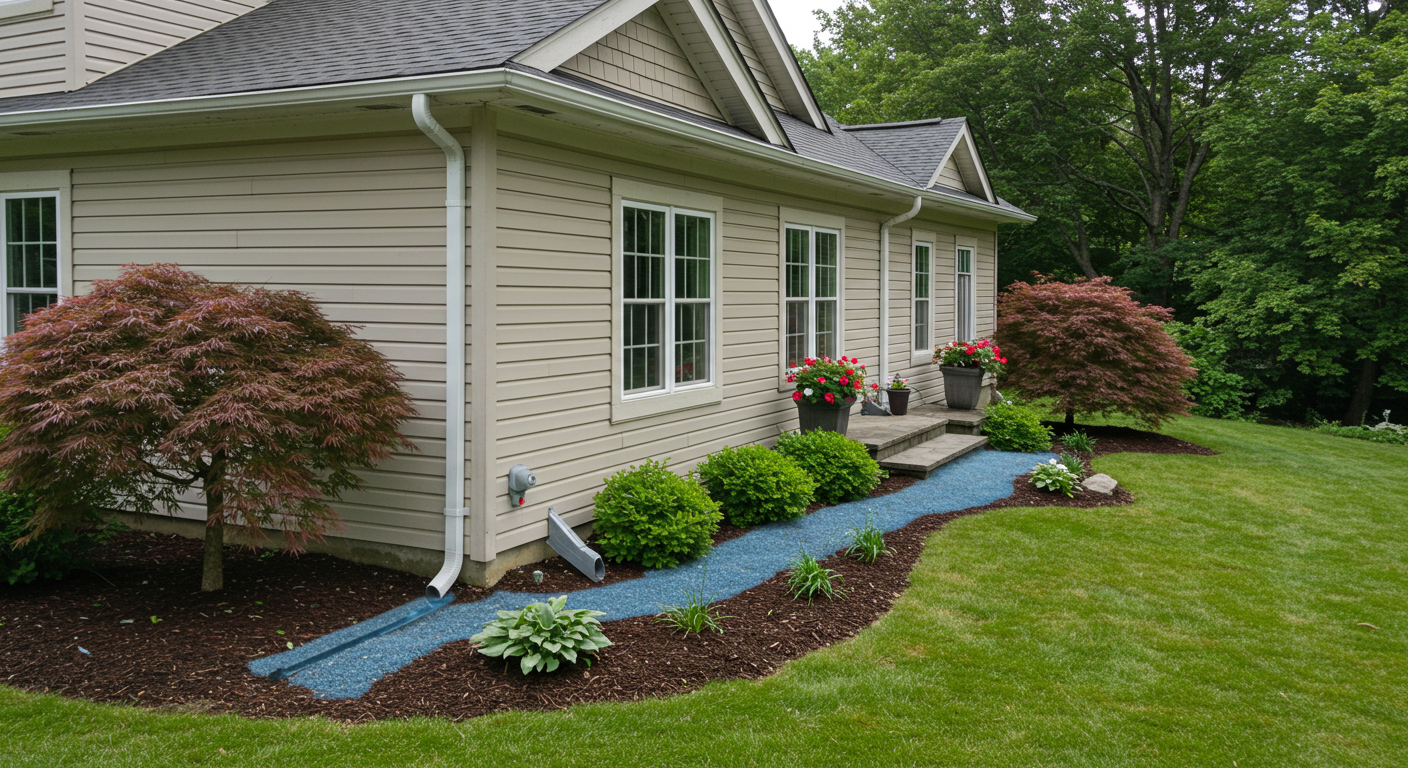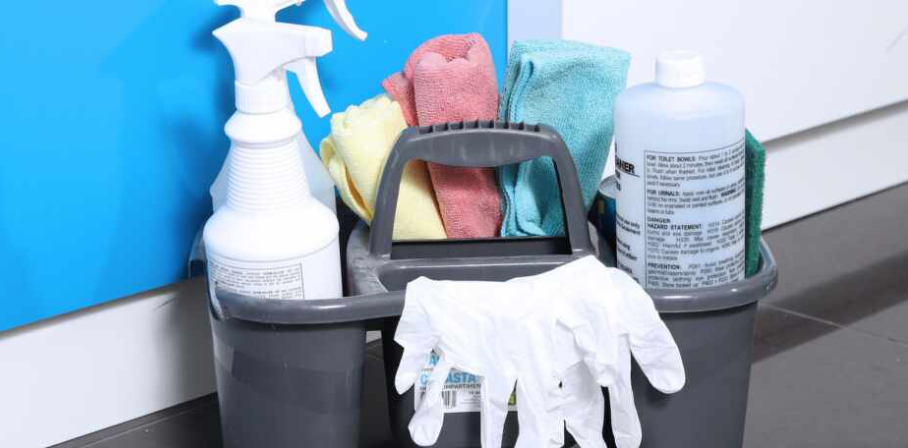Gutter installation significantly manages stormwater around your home by directing rainwater away from your foundation, walls, and landscaping. Heavy rainfall can lead to soil erosion, pooling water, and basement flooding without a proper gutter system. Gutters collect rainwater from the roof and channel it through downspouts to designated drainage areas. This prevents excessive water buildup around the foundation, reducing the risk of structural damage. Additionally, gutters help minimize the impact of heavy rains on your landscaping by avoiding soil displacement and protecting plants from excessive moisture exposure.
Beyond preventing immediate water damage, gutters contribute to long-term property maintenance by reducing the risk of cracks and deterioration in your home’s foundation. When water consistently pools near the base of a house, it can seep into the foundation and create pressure against the walls, leading to costly repairs. Properly installed gutters by Village Roofs ensure that rainwater is efficiently directed away, reducing this risk. Furthermore, gutters help prevent staining and deterioration of exterior walls by preventing water from splashing against the siding. Over time, homes without gutters often experience discoloration, mold growth, and even wood rot due to prolonged exposure to moisture. By installing gutters, homeowners can avoid these issues and maintain the integrity of their property for years to come.
Another critical function of gutters is protecting paved surfaces such as driveways, walkways, and patios. When rainwater is not properly channeled, it can lead to cracks and uneven surfaces as water seeps into the ground beneath the pavement. In colder climates, trapped water can freeze and expand, causing further damage. Gutters mitigate this risk by ensuring water flows to designated drainage areas rather than pooling on paved surfaces. This not only preserves the functionality of these areas but also improves safety by reducing the likelihood of slipping hazards caused by standing water or ice formation. By managing stormwater effectively, gutters play a crucial role in maintaining the stability and longevity of various structural elements around your home.
How Gutters Improve Drainage and Reduce Flooding Risks
One of the primary ways gutters enhance stormwater management is by improving drainage efficiency, which helps prevent flooding and water-related damage. Rainwater runs off the roof uncontrollably without gutters, often collecting in low-lying areas around the home. This can lead to waterlogged soil, foundation damage, and basement flooding. A well-designed gutter system ensures that stormwater is properly channeled into downspouts and directed toward safe drainage areas such as dry wells, storm drains, or rain gardens. By controlling water flow, gutters significantly reduce the risk of localized flooding, which can be particularly beneficial in areas prone to heavy rainfall.
Gutters also help prevent soil erosion, a common issue when stormwater flows unchecked around a property. When rainwater falls from the roof without being collected, it can create deep trenches in the soil and wash away essential nutrients. This damages landscaping and destabilizes the ground around the foundation, increasing the likelihood of structural issues. Properly installed gutters distribute water evenly and direct it to areas where it can be absorbed safely, such as grassy lawns or designated drainage channels. This helps maintain soil stability and promotes healthier vegetation growth. By preventing erosion, gutters contribute to the overall sustainability of your outdoor environment, ensuring that your yard remains intact even after heavy storms.
Another key benefit of gutters in stormwater management is their ability to reduce hydrostatic pressure around the foundation. When water accumulates in the soil near a home, it exerts pressure against basement walls, leading to cracks, leaks, and even structural shifts. Over time, this can result in costly foundation repairs and long-term damage to the home’s integrity. By directing water away from the foundation, gutters minimize the buildup of hydrostatic pressure, reducing the chances of basement flooding and foundation instability. Homeowners who invest in a proper gutter system can prevent these problems and maintain a stable, dry living environment.
Gutters also support efficient stormwater collection and reuse, promoting environmentally friendly water management practices. Many homeowners use rain barrels or other collection systems to harvest rainwater from their gutters, which can be used for irrigation, gardening, or other outdoor needs. This reduces reliance on municipal water supplies and helps mitigate runoff-related issues. By controlling and repurposing stormwater, gutters contribute to sustainable water conservation efforts, making them valuable to any home.
Furthermore, gutters help protect nearby water sources from contamination. When stormwater flows directly off a roof and into the surrounding landscape, it can carry pollutants such as dirt, leaves, pesticides, and chemicals into storm drains and natural water bodies. This contributes to water pollution and can harm local ecosystems. A well-maintained gutter system helps mitigate this issue by filtering debris and directing water to controlled drainage areas. Homeowners can further enhance their stormwater management strategy by installing gutter guards to prevent clogs and ensure smooth water flow. By reducing runoff pollution, gutters are crucial in maintaining cleaner and healthier local waterways.
Gutter installation is essential to effective stormwater management, offering multiple benefits that protect a home’s foundation, landscaping, and overall structural integrity. By directing rainwater away from vulnerable areas, gutters help prevent soil erosion, basement flooding, and hydrostatic pressure buildup that can lead to costly repairs. Additionally, they contribute to better drainage, reduce localized flooding, and promote sustainable water conservation through rainwater collection systems. By managing stormwater efficiently, gutters also protect the environment by minimizing runoff pollution and preserving nearby water sources. Investing in a well-designed gutter system is a proactive measure that ensures long-term home protection while supporting sustainable water management practices.















